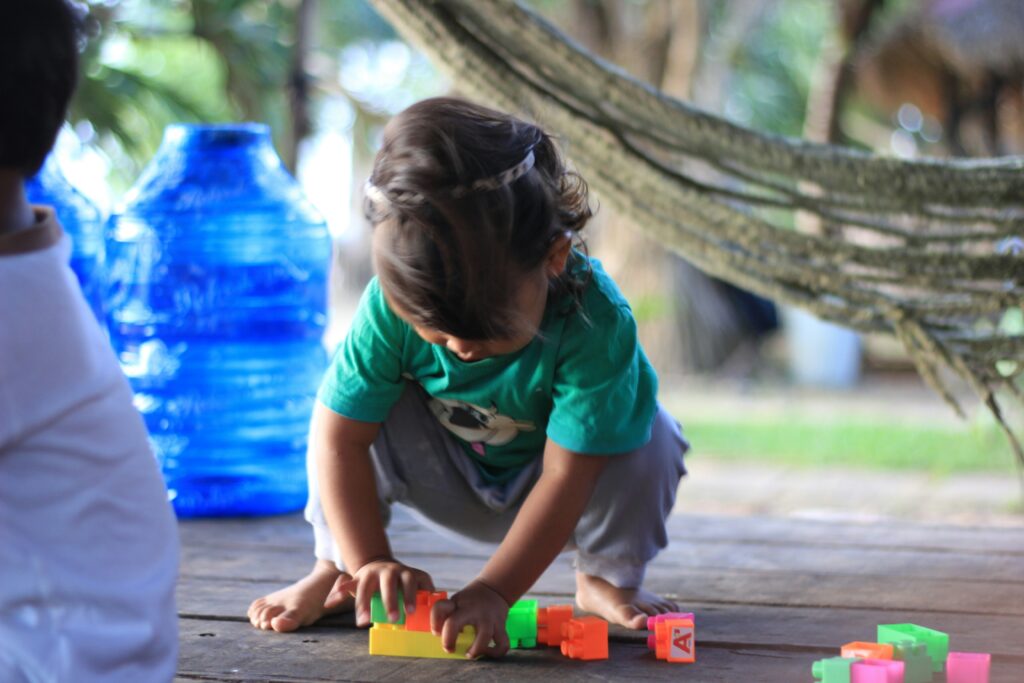EECERA Conference 2025 – Guest Blog # 37: “Every kindergarten needs a junkyard”
Posted 24th August 2025
One of a series of short blog posts by presenters who will be sharing their work at the upcoming annual conference in Bratislava, Slovakia. Any views expressed in this post are those of the author(s) and do not necessarily reflect the official stance of their affiliated institution or EECERA.
“Every kindergarten needs a junkyard”: The Israeli Junkyard approach- From Rural Origins to Urban Implementation
By Shulamit Hoshen-Manzura, Michlalah Jerusalem College and Sigal Achituv, Oranim College of Education, Israel

Photo by Sovannkiry Sim on Unsplash
Our qualitative research explores the innovative Junkyard Approach (JA), an educational method originating in Israeli kibbutz settings that is now being adapted to urban early childhood education environments.
The study reveals how educators successfully implement the Junkyard Approach in urban settings, highlighting its significant potential for children’s holistic development. Our findings demonstrate that this approach offers a unique learning environment that supports children’s physical, cognitive, and social-emotional growth through open-ended, child-led play with repurposed materials. Unlike traditional structured play spaces, the Junkyard Approach provides children with opportunities for creative exploration, risk-taking, and innovative problem-solving.
A key innovative contribution of this research is our novel conceptualization of community in early childhood education. By examining the Junkyard Approach across different settings, we reveal how the community extends far beyond traditional boundaries. The study shows that when urban educators are oriented towards outdoor learning, they can transform the surrounding human environment into a meaningful learning resource. Communities form around kindergartens, extending beyond the typical partners of children, parents, and staff to incorporate diverse stakeholders and reimagine community connections.
This research is particularly relevant to early childhood education researchers and practitioners seeking innovative approaches to childhood learning that prioritize children’s autonomy, creativity, and experiential learning. By examining the implementation challenges and strategies in different educational contexts, our study offers valuable insights into transformative educational practices that can be adapted across diverse settings.
For background reading and further exploration, you are invited to review the following two articles. One deals with the pedagogy of Malka Haas, who established the junkyard playground, and the other addresses the perceptions of early childhood educators in Israel from urban, rural, and kibbutz settings regarding the communities in which they work:
Achituv, S. (2024). “A life full of meaning”; The lifework and educational approach of Malka Haas. Journal of Jewish Education, 90(3), 182-196. https://doi.org/10.1080/15244113.2024.2336483
Achituv, S., Dror, O., & Brody, D. (2025). Attitudes of Israeli early childhood educators who work in kibbutzim, rural villages, and cities towards their community and the effect of community on their practice. Children and society,1-11. https://doi.org/10.1111/chso.12941
We are also attaching a link to an active Facebook group on the topic of the junkyard approach. While the group operates in Hebrew, the translation option combined with the illustrative images will greatly contribute to understanding the educational approach that we are studying: https://www.facebook.com/groups/801631757696813
Sigal Achituv will present work referred to in this blog in Symposium Set F7 | Wednesday 27th August 2025 (Schedule liable to change; please refer to final programme for details).
